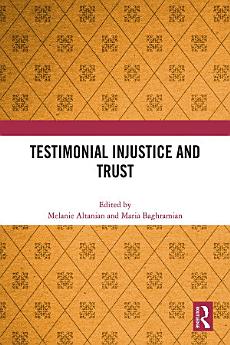Testimonial Injustice and Trust
Información sobre este eBook
Drawing from different philosophical schools of thought and approaches, the book provides a comprehensive analysis of the conditions, mechanisms and normative implications of testimonial injustice, a term most prominently introduced by Fricker (2007), and the role that trust can play in fostering testimonial justice. Through the application of theories of epistemic injustice, and testimonial injustice, to new contexts and cases, including gendered violence, disability, indigenous knowledge, genocide, vaccine hesitancy and the COVID-19 pandemic, the book sheds light on the real-world significance of these philosophical concepts.
Testimonial Injustice and Trust introduces new directions for further research and will appeal to scholars and students in (critical) social and political epistemology, normative ethics as well as social and political philosophy more generally. The chapters in this book were originally published in the International Journal of Philosophical Studies, Social Epistemology and Educational Philosophy and Theory.
Acerca del autor
Melanie Altanian is Assistant Professor at the Chair of Epistemology and Theory of Science, Albert-Ludwigs-University Freiburg, Germany. Previously, she was a guest lecturer at University College Dublin School of Philosophy, and research assistant in the Horizon 2020 project Policy, Expertise, and Trust in Action (PERITIA).
Maria Baghramian is Full Professor of Philosophy at University College Dublin, Ireland and a Professor II at University of Oslo, Norway. She currently is lead investigator of the Horizon 2020 project Policy, Expertise and Trust in Action (PERITIA), which created the occasion for work on this volume.







